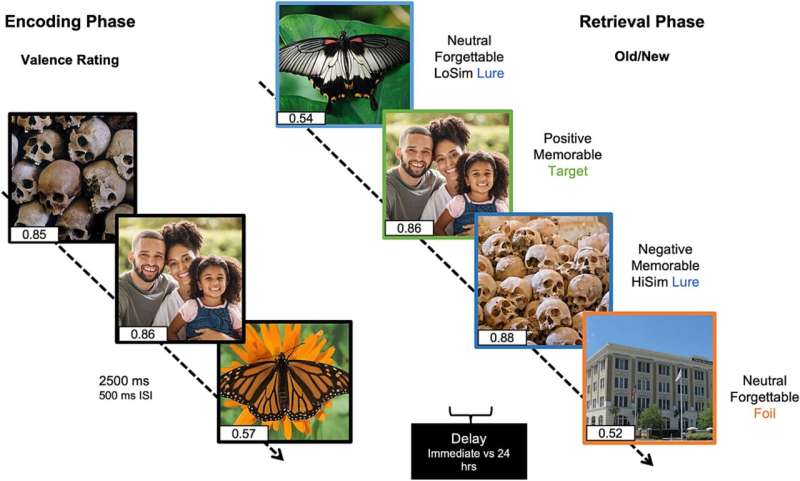Research explores why we remember what we remember

We've all been in a similar situation—you lock your front door for the umpteenth time in a given week only to panic minutes later when you're driving to work as you struggle to remember if you actually locked the door.
If this sounds familiar, you're not alone, and you're also not losing your mind. A new study published in Neurobiology of Learning and Memory by Rice University psychologists found that certain experiences are better remembered by most people, while other experiences, like locking the door behind us, are more easily forgotten.
However, the story isn't quite that simple, according to researchers Fernanda Morales-Calva , a Rice graduate student, and Stephanie Leal , assistant professor of psychological sciences. They conducted the study to better understand just how human memory works. They said humans tend to focus on remembering certain aspects within an experience more than others such as the big picture of what happened rather than the details.
"Struggling to remember is one of those things we all experience," Morales-Calva said. "But when it comes to understanding memory, there's a lot to be discovered about how it actually works. And there's a new area of memory research that's trying to tap into why we remember certain things better than others."
For example, Morales-Calva said people looking back on the last year may recall doing a lot of different things, but only a few of them might really stand out in great detail.
"Previous research has found that these memorable experiences for one person are very likely memorable for another person, like birthday parties, deaths of a loved one and more," Leal said. "These are often positive or negative experiences. This knowledge has helped us design research studies looking at memory performance."
The researchers evaluated memory by showing pictures to their study participants. During a memory test, some of these images were repeated, some were brand new, while others were very similar and difficult to distinguish from one another. These similar images were meant to interfere with memory, kind of like the similar daily experiences such as trying to remember if the door is locked. Memorable images were identified as the ones participants were most likely to recall.
Morales-Calva and Leal found that while participants correctly remembered the most memorable images, this effect was lost after 24 hours. This was especially true when remembering positive experiences, suggesting these experiences are memorable at first but more prone to be forgotten.
"While we feel like we know what types of experiences are memorable, we really don't know what features of a memory are remembered best in the long term," Morales-Calva said. "We often think emotional memories are better remembered, but in fact gist versus detail trade-offs exist where the central features of the memory are enhanced while details may be forgotten."
So if you're one of the many people in the world who can't remember if five minutes ago you put down your garage door or swallowed your medicine, the researchers said you're not alone.
"Our brains can't possibly remember everything we experience, and so we have to do a bit of selective forgetting for information that isn't as important," Leal said. "This study helps us get closer to understanding why we remember what we remember."
Morales-Calva and Leal said they hope their findings will offer new insights into how memory works, and why some things are memorable and others are not. They hope future studies will consider the complexity of memory in everyday life, including consideration of the emotional content, time that has passed since the experience and perceptual features of memory that may have significant impacts on what we remember.
More information: Fernanda Morales-Calva et al, Emotional modulation of memorability in mnemonic discrimination, Neurobiology of Learning and Memory (2024). DOI: 10.1016/j.nlm.2024.107904
No comments:
Post a Comment